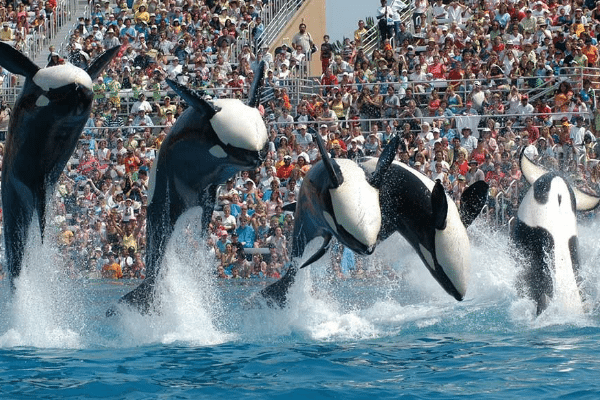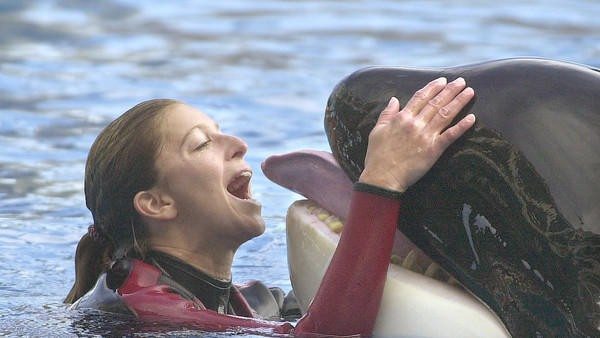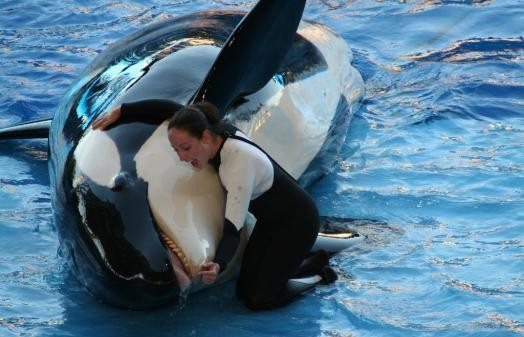Have you ever thought how humans train one of the top predators of the sea? At Sea World, in Orlando, Florida (in the United States), you will be surprised to see killer whales do funny yet mind boggling acts – you can see them playing games with a team of trainers or riding a trainer on their back across a large pool. Sometimes you might see them jumping three to four feet above the water level in a show that mesmerizes the audience. One of the most memorable things in the entire show is the bonding between the trainer and the whale. In the book, Whale Done, by Ken Blanchard, the author mentions how the killer whales establish a personal bond with the trainer over a period of time before they get into the water with the predator. For leaders, it is important to know that there is a possibility to do the impossible. If humans can make a killer whale swim with them and host a show, it is possible for us to work together with people and get things done too! Here are four ultra-productive ways to establish a connection with the people around you.
Have Relationship Sessions:
The whale trainers spend lots of time with the whales during their training. During such relationship sessions, a whale will spend time with her trainer not doing anything but getting used to the trainer’s touch and presence. These sessions develop a personal connection between the trainer and the whale. As leaders, we must also spend time developing relationships and be with people beyond the work meetings. Humans are social beings and they value personal touch.- “No Feedback” Is Unproductive:
Imagine, the whale does the right trick but there is no feedback from the trainer. The whale would not know whether it was right or wrong! A good trainer will always reinforce the right behavior by appreciating (giving food, a pat, a rub, etc.) the whale. As a leader, take every opportunity to notice and appreciate even the smallest good behavior that was displayed by your team. This would help them know what’s right and what’s not. What you appreciate will multiply. - Never Reprimand:
The trainers know that they will go inside the pool with the same whale they have trained. Now if the trainer reprimands the whale it can be really tough for the trainer, maybe impossible, to deliver a successful show together with the whale. Whales are emotional animals and they value relationships. They can behave oddly if they feel the trainer doesn’t care about them. The same is true with humans; if we reprimand people for their performance then we spoil the relationship. As leaders, we can course correct the individual by accentuating his positives instead of blaming or reprimanding. Coaching as a tool can be used to get the people on the right path. - It Is Not Just About Food:
Whale trainers use a variety of ways to provide positive reinforcements, for example – a hug, a pat, a rub, some food, or even time off. As leaders, sometimes we assume that the only way to motivate people is money. What we forget is that we also have several ways to motivate people – a pat on the back, time off, an achievement certificate, an appreciation email, or even a public announcement of good work. People do work for money, but if you pay them enough so that the money topic is off the discussion table, then they need much more to keep them motivated.
We would love to be a part of your off-sites and sales conferences and deliver keynote sessions on motivation for your team. It is time to go beyond the carrot and stick because today is a new day and old rules don’t apply in the new economy. It’s time to apply the new principles of motivation that work to deliver results. Write to us and we would be more than happy to provide you with a customized solution.


 Have Relationship Sessions:
Have Relationship Sessions: Whale trainers use a variety of ways to provide positive reinforcements, for example – a hug, a pat, a rub, some food, or even time off. As leaders, sometimes we assume that the only way to motivate people is money. What we forget is that we also have several ways to motivate people – a pat on the back, time off, an achievement certificate, an appreciation email, or even a public announcement of good work. People do work for money, but if you pay them enough so that the money topic is off the discussion table, then they need much more to keep them motivated.
Whale trainers use a variety of ways to provide positive reinforcements, for example – a hug, a pat, a rub, some food, or even time off. As leaders, sometimes we assume that the only way to motivate people is money. What we forget is that we also have several ways to motivate people – a pat on the back, time off, an achievement certificate, an appreciation email, or even a public announcement of good work. People do work for money, but if you pay them enough so that the money topic is off the discussion table, then they need much more to keep them motivated.